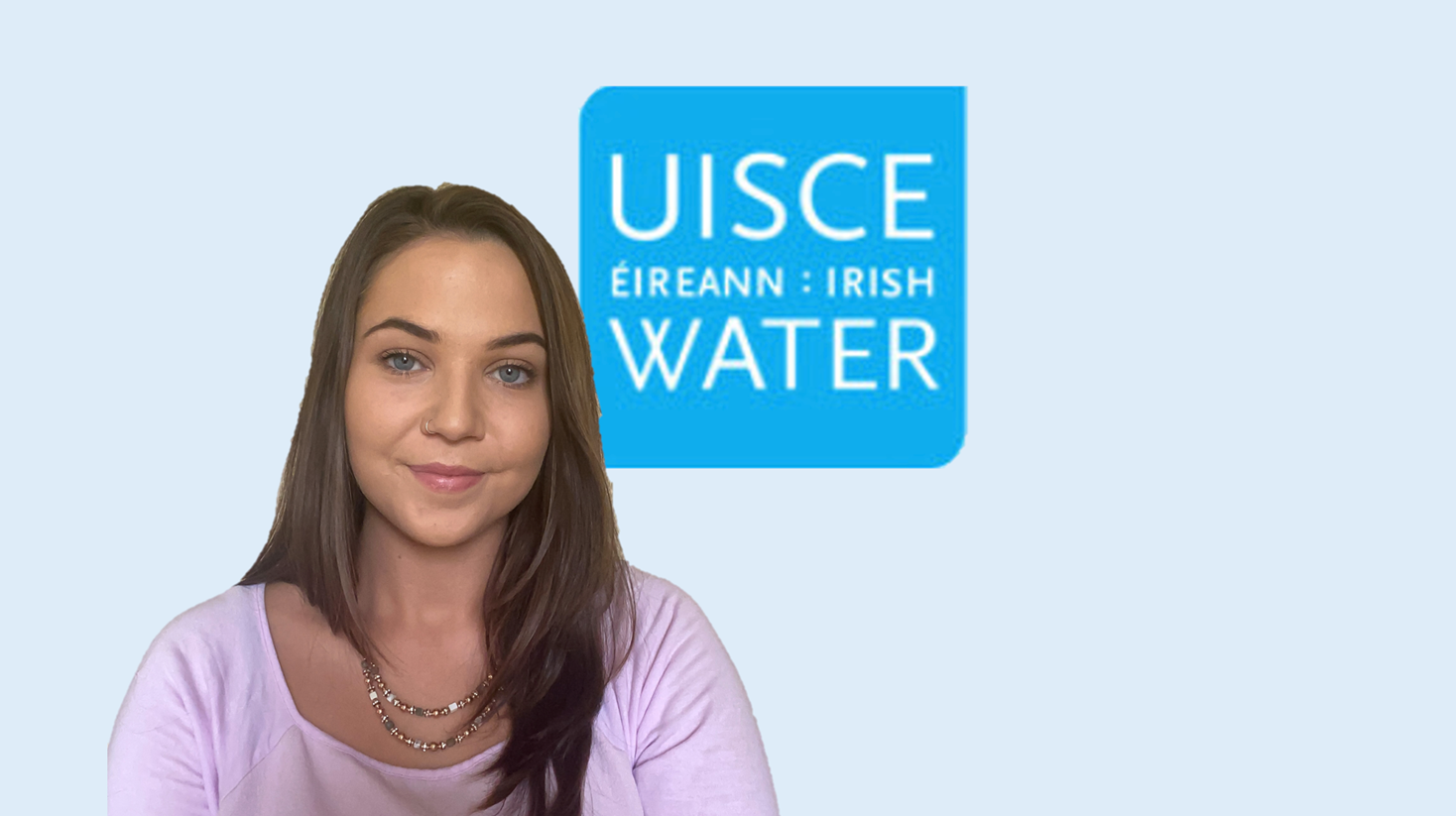
New generation Clare scientist at Irish Water on her passion for safeguarding the environment as part of Science Week 2022
Tuesday, 15 November 2022 Irish Water is delighted to take part in National Science Week 2022, which runs from 13 – 20 November and celebrates science in our everyday lives. The theme for this year is ‘Infinite Possibilities’, focusing on how science can improve our lives and help us to make positive choices that will impact the environment, our health, and our quality of life. This is especially important during these unprecedented times while we are all try to navigate through a landscape of a rapidly changing climate and energy crisis.
As part of Science Week, Irish Water is profiling several of our most innovative and ground-breaking scientists and the vital work they do in the water and wastewater industry and the role that science plays in safeguarding our water supplies and the environment.
Leanne Casey, a Killaloe native from Co Clare is a new visionary breed of scientists having graduated in the middle of the climate and energy crisis with an MEngSc in Water, Waste, and Environmental Engineering at University College Dublin (UCD). Her determination to find sustainable solutions in agriculture, environmental protection, and climate resilience sparked her interest to join Irish Water as part of the Cross Industry Graduate Programme.
Leanne completed her thesis from UCD this year, titled ‘Vulnerability Assessment for Improved Flood Risk Management in Irish River Catchments’. It involved developing a framework to quantify the flood risk in the River Dodder catchment area using Multi-Criteria Decision Analysis (MCDA). The project found that the social factors of old age, low flood risk awareness, and disadvantageous building types (i.e., basement flat or bungalow) to largely increase flood vulnerability.
“Flooding has become one of the major climate issues of our times. Using data from surveys administered to homes in flood-prone areas of the Dodder catchment area in Dublin, a flood risk map was developed showing geo-located houses with low, moderate, and high flood risk based on the information provided in the survey.”
Speaking about her role at Irish Water, Leanne said “My first rotation is with Irish Water, working in Asset Delivery in the Wastewater Division. The Wastewater Division is involved in all stages in the lifecycle of wastewater treatment plant development. Being a part of such large projects is interesting, especially because a significant wastewater treatment plant is now being built in Arklow, Co. Wicklow.”
“I have been learning a lot about the Arklow Wastewater Treatment Plant and the great progress being made to treat wastewater which has normally been discharged untreated to the Avoca River in the past. The project is due to be completed in 2025 and really interesting part of this project is the construction of 900 m long sea outfall pipe which will discharge the treated water far out at sea once the treatment plant is operational.”
As more and more women in Ireland are turning to careers in science and engineering, Leanne would wholeheartedly encourage women to study science. One of the main benefits of a career in science according to Leanne is that you are always on a learning curve and rarely confined to a desk.
Leanne said, “I have been very fortunate as the ratio of men to women in my undergraduate programme was almost 50:50, and the intake for the Cross Industry Graduate Programme is the first to have more women than men.”
Leanne’s advice to women considering a career in science would be to encourage women to study and work in Science, Technology, Engineering and Mathematics (STEM) as it’s certainly not a monotonous or repetitious career choice. The opportunities are endless in terms of research and providing innovative solutions to tackling climate change both in Ireland and around the globe.
For further information on Irish Water’s events throughout the country as part of Science Week, visit www.water.ie/scienceweek
